File Structure
01.spec.js - - - I call helpers from the protractor specs which is fine
describe('should click on element', function () {
var helper1 = require('../../modules/helpers/helper1.js');
it('should click and assert...', function() {
helper1.clickOnCircle('Accounts');
});
});
...But to use any helper functions from another helper file...
helpers1.js - - - I have to require the helper in every function
module.exports = {
clickOnCircle: clickOnCircle,
clickOnBox : clickOnBox
};
var helper2 = require('./helper2.js'); //node require doesn't hit something like this
function clickOnCircle(circleText) {
var helper2 = require('./helper2.js'); //needed in every function
helper2.doSomething(circleText);
}
function clickOnBox(boxText) {
var helper2 = require('./helper2.js'); //needed in every function
helper2.doSomething(boxText);
}
It's almost like I want the helper files to be available globally. I've messed around using configuration parameters but I still end up having to require the helper from each function.
